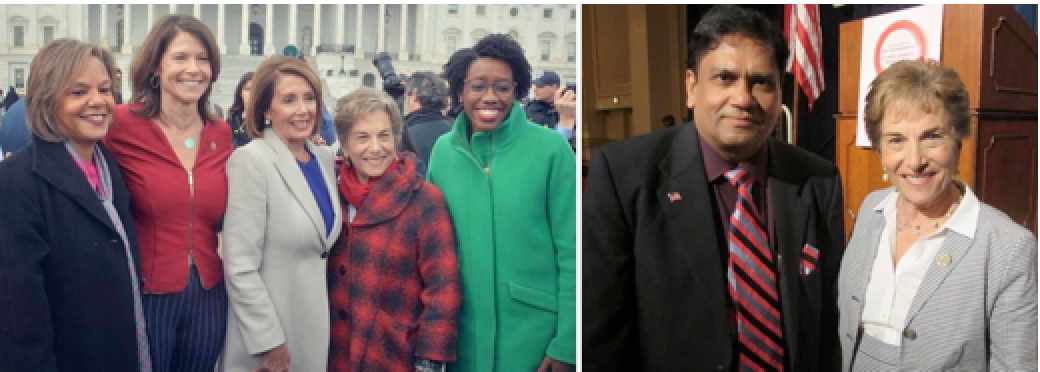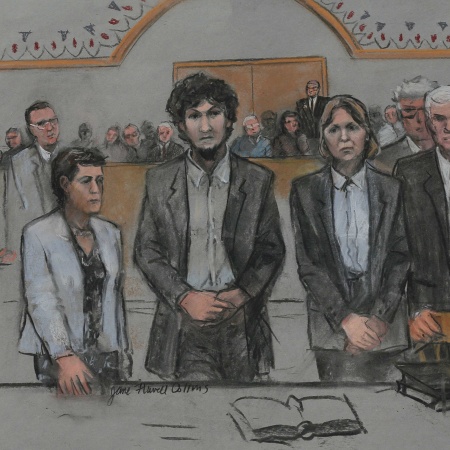The Pakistani Elections
By Geoffrey Cook, MMNS
Although there were irregularities, overall the elections were fair. The proof of this is that the “King’s†Party (Musharraf’s) did not win the Parliamentary elections for good or ill.
Because of the threat of violence, the turn out was quite low – c. 20-40%(?) — for the excitement generated due to the threat of violence. The results, although they did proclaim a desire for change, was, also, askew. Many in the rural areas followed the wishes of their (feudal) landlords. South Asian feudalism has to be broken for true democracy to prevail in Pakistan.
The Musharraf Government was working toward a democracy but with a Constitutional place for the military much in the image of the Turkish form. The two opposition Parties — PPP (the Pakistan People’s Party) and the Pakistan’s Muslim League – although with grave differences, have decided to unite in a Coalition. The question is can they resolve their differences enough to rule?
The past history of the two historical democratic (victorious) parties in these Parliamentary contests record of governance has been horrible! During their four previous Governments (two each), Islamabad had been considered the second most corrupt public administration in the world. The General cleaned this up through his Accountability Courts. Thus, the Coalition has to reform itself from within to successfully rule, and with such leading but notorious figures as Sharif and Zadiri, there may be difficulty in creating sincere reform – besides the two personalities never got along in the past.
Also, it will be hard for Zidari and Sharif to work with President Musharraf, for Benezir’s husband was imprisoned for eleven years, and Sharif attempted to murder Musharraf along with a civilian plane full of passengers and potential victims on the ground. The two Coalition partners would both like to reinstate the judiciary to declare the President’s election null and void; and, consequently, impeach him. Yet it is doubtful that Pervez Musharraf will step down. These elections have weakened the Pak Executive and exalted the legislature! Succinctly, the Coalition Government will be unstable, though. Concisely, this poll was a referendum against the influence of the Army!
Yet, there is hope. A Pakistani Professor from the University of Texas stated, “The political parties will have to show a tremendous amount of maturity†which they have not shown in the past.
Strangely, the Islamic Parties, which had asserted themselves in the last Parliament, have been essentially eliminated from the current ruling Assemblage when Western Democracy was imposed upon Pakistan again.
Under the strong State, foreign investment was encouraged. With a perceived lack of security, Pakistan is not only at a political but also at an economic crossroads. Previously, they have especially benefited from Chinese investment and the American influx of military aid.
Inflation has begun to take hold, however. “There has been prosperity in Pakistan but only for certain people.†Neo-liberalization and privatization has taken hold during the Musharraf years, which has produced a “Free Market economy without a safety net.†The economic squeeze can only increase the dangerous disparities between classes until a strong Civil Society can take hold, but above all, the greatest problem is law and order, and the people are apprehensive. Education and welfare is what is on their mind, but without a secure environment the finances will still be diverted to defense!
“Pakistan is strongly linked to America,†and this election is catastrophic for U.S. interests. One of the central reasons that the President’s party’s lost was the populace’s alienation against Pakistan’s alliance with the District of Columbia’s in our War Against Terrorism, for the people feel it is the U.S.’ and not Pakistan’s battle. “The relationship between the United States and Pakistan†could shift drastically. This is something only time will tell.
10-10














2008
799 views
views
0
comments